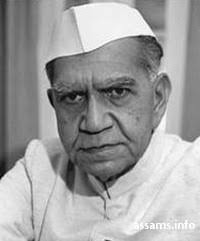Biography Fakhruddin Ali Ahmed: A Legacy of Dedication and Service to India’s Democracy
Biography Fakhruddin Ali Ahmed: Fakhruddin Ali Ahmed, the 5th President of India, played a significant role in shaping the nation’s democratic fabric during a crucial phase in the country’s history. His presidency, although short, was marked by his dedication to public service, commitment to the democratic process, and resilience in the face of political challenges. This biography delves into his early life, political career, achievements, and the lasting impact he had on India’s journey as a republic.
Biography Fakhruddin Ali Ahmed Early Life and Education
Fakhruddin Ali Ahmed was born on May 13, 1905, in a prominent family in Hazaribagh, Bihar (now in Jharkhand). His father, a well-known lawyer, and his family were deeply involved in social and educational reforms, and this environment greatly influenced Ahmed’s intellectual and personal development.
He attended Aligarh Muslim University (AMU), one of India’s prestigious educational institutions, where he excelled academically. Later, he moved to London, where he attended the University of London and studied law. This solid foundation in law and politics would play a crucial role in his future political career.
Biography Fakhruddin Ali Ahmed Early Political Career
Fakhruddin Ali Ahmed’s political journey began with his deep involvement in the Indian National Congress (INC), which was at the forefront of India’s struggle for independence. He was drawn to the freedom movement and was an active participant in it. Ahmed’s involvement in the political scene grew, and he emerged as a significant figure in the post-independence political landscape.
He became a member of the Assam Legislative Assembly in 1937 and served in various capacities. His leadership abilities and commitment to the nation earned him respect, and he quickly rose through the ranks of the Indian National Congress. He was appointed as the Chief Minister of Assam in 1957, where he initiated several progressive reforms aimed at improving education, healthcare, and social justice for the people of Assam.
Biography Fakhruddin Ali Ahmed Rise to the Presidency
Fakhruddin Ali Ahmed’s political career reached its pinnacle when he was elected as the President of India in 1974. His election was a testament to his political acumen, dedication to the values of democracy, and his commitment to upholding the Constitution of India.
As President, Ahmed had to navigate a period of political turmoil, especially during the emergency declared by then-Prime Minister Indira Gandhi in 1975. While the decision to impose the Emergency was highly controversial, Fakhruddin Ali Ahmed’s role as President during this time is considered pivotal. He was the first Indian President to declare a state of Emergency, exercising the constitutional powers granted to him. The Emergency, which lasted from 1975 to 1977, was marked by significant political repression, censorship of the media, and suspension of civil liberties.
Although his actions during the Emergency are still a subject of debate, it is essential to understand the political and constitutional pressures he faced during that time. His decisions were made within the context of the political climate of the period, and many view his presidency as one of resilience, often caught between the demands of the Prime Minister’s office and the constitutional mandate to protect democracy.
Biography Fakhruddin Ali Ahmed Contributions and Achievements
- Champion of Constitutional Values: Fakhruddin Ali Ahmed was a strong advocate for upholding the Constitution of India. Even during the Emergency, when many civil liberties were suspended, he worked to ensure the political stability of the country, though it came at the cost of controversy.
- Development of Assam: As the Chief Minister of Assam, Ahmed made significant contributions to the development of the state. His government focused on economic growth, rural development, and infrastructural improvements. He worked to uplift the socio-economic conditions of the people in Assam, especially the marginalized communities.
- Symbol of Secularism: As a Muslim leader in a multi-religious, multi-ethnic country like India, Fakhruddin Ali Ahmed was a staunch supporter of India’s secular ideals. He believed in promoting harmony between different communities and worked to create an inclusive and just society.
- Advocacy for Education and Social Reforms: Throughout his political career, Fakhruddin Ali Ahmed was committed to the cause of education and social reform. He believed in empowering the youth of India through education and creating opportunities for social mobility for the disadvantaged sections of society.
Biography Fakhruddin Ali Ahmed Significance and Observance
Fakhruddin Ali Ahmed’s presidency and his contributions to the development of the Indian state are still relevant today. His time as Chief Minister of Assam and later as President served as a bridge between the country’s colonial past and its post-independence future. As a political leader, he left an indelible mark on India’s democratic traditions and political processes.
Though the Emergency period remains controversial, Fakhruddin Ali Ahmed’s legacy cannot be reduced to just one chapter. His broader contribution to the country’s development as an administrator and statesman is deeply respected.
Key Facts about Biography Fakhruddin Ali Ahmed
- President of India: Fakhruddin Ali Ahmed served as the 5th President of India from 1974 to 1977.
- Chief Minister of Assam: Prior to his presidency, he was the Chief Minister of Assam from 1957 to 1960, where he made significant contributions to the state’s development.
- Role in the Emergency: He is remembered for his decision to declare the Emergency in 1975, an event that has been both criticized and defended in various circles.
- First Muslim President of India: Fakhruddin Ali Ahmed was the first Muslim to become the President of India, symbolizing the inclusive nature of Indian democracy.
Biography Fakhruddin Ali Ahmed Frequently Asked Questions (FAQs)
1. Why did Fakhruddin Ali Ahmed declare the Emergency in 1975? The declaration of the Emergency was a response to the political crisis of the time, marked by unrest and opposition movements. Though it has been a subject of much debate, it is believed that Fakhruddin Ali Ahmed, under significant pressure, acted according to the constitutional framework.
2. What contributions did Fakhruddin Ali Ahmed make to Assam? As Chief Minister, Fakhruddin Ali Ahmed implemented various educational, social, and infrastructural reforms that helped improve the quality of life for people in Assam. His leadership during this period is remembered for its focus on socio-economic development.
3. How is Fakhruddin Ali Ahmed remembered today? Fakhruddin Ali Ahmed is remembered for his political resilience, his role in India’s independence movement, and his presidency during a turbulent period in Indian politics. Despite controversies, his legacy as a public servant continues to inspire future generations of leaders.
Conclusion: Biography Fakhruddin Ali Ahmed
Fakhruddin Ali Ahmed’s life and career reflect the journey of a dedicated public servant who navigated both political turbulence and the responsibilities of leading a nation. His legacy is complex, shaped by both admiration for his dedication to the nation’s progress and critique over the decisions made during his presidency. Regardless of political opinions, his contribution to India’s political and democratic structures is significant, and his commitment to the country’s growth is undeniable.










